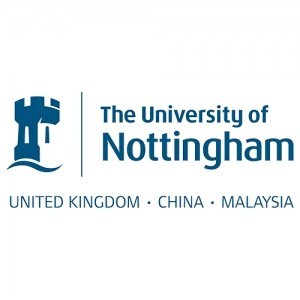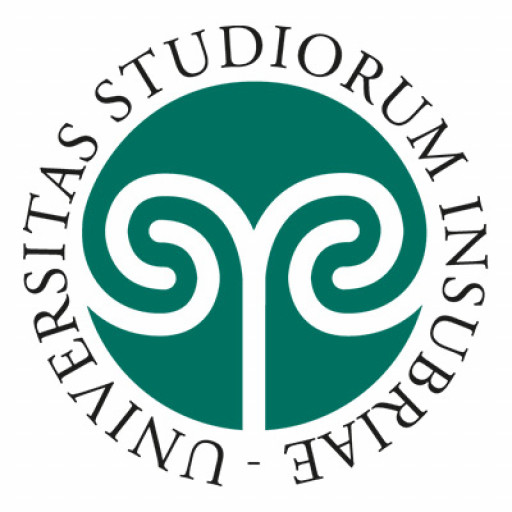The Bachelor of Arts in Applied Linguistics at The University of Nottingham Ningbo China is a comprehensive undergraduate program designed for students interested in understanding the intricacies of language in real-world contexts. This program equips students with a solid foundation in linguistics theory, combining it with practical skills essential for careers in language teaching, translation, language policy, and other fields related to language and communication. Throughout the course, students explore various aspects of language structure, language acquisition, and language use across diverse contexts, including intercultural communication and media. The curriculum emphasizes both theoretical understanding and practical application, preparing graduates to analyze language data, develop effective teaching methodologies, and engage in research projects. Students have opportunities to participate in internships and language practice sessions, gaining valuable hands-on experience. The program also encourages the development of critical thinking, cross-cultural awareness, and research skills, enabling graduates to adapt to evolving linguistic and global challenges. With a team of experienced faculty from diverse backgrounds, the program fosters an inclusive academic environment that promotes innovation and academic excellence. Graduates from the BA in Applied Linguistics at NBNC are well-prepared for employment in diverse sectors such as education, government, media, and international organizations, reflecting the universal importance of language skills in today’s interconnected world. The university’s state-of-the-art facilities, international outlook, and dedicated support services provide an excellent environment for students to thrive academically and personally, paving the way for successful careers in applied linguistics and related disciplines.
The Bachelor of Arts in Applied Linguistics at The University of Nottingham Ningbo China offers a comprehensive and dynamic curriculum designed to equip students with essential skills and knowledge in language analysis, teaching, and research. The program focuses on the scientific study of language, exploring how languages are structured, used, and acquired in real-world contexts. Students will engage with diverse areas including second language acquisition, language teaching methodologies, discourse analysis, sociolinguistics, psycholinguistics, and translation studies.
Throughout the course, students will develop a deep understanding of linguistic theories and their practical applications. They will learn how to analyze language patterns, design effective language learning programs, and employ innovative strategies for teaching English and other languages. Practical components include teaching practice placements, linguistic research projects, and opportunities to develop digital and multimedia language learning resources.
In addition to core linguistics modules, students have the flexibility to choose electives aligned with their interests, such as intercultural communication, language technology, and curriculum development. The program emphasizes practical skills such as communication, critical thinking, and research methodology, preparing graduates for careers in education, translation, language assessment, and language technology industries.
The program also fosters international perspectives by integrating cross-cultural communication and global language issues into the curriculum. Students will benefit from experienced faculty, modern teaching facilities, and opportunities for internships and industrial placements that enhance employability. Graduates of Applied Linguistics at The University of Nottingham Ningbo China are well-equipped to contribute to language education and applied language research both in China and globally, with a strong foundation in theoretical knowledge and practical experience.
Program requirements for the BSc in Applied Linguistics at The University of Nottingham Ningbo China include a combination of academic qualifications and language proficiency standards. Applicants are typically expected to have completed their secondary education with a strong academic record, particularly in English and related subjects. Proficiency in English must be demonstrated through standardized test scores such as IELTS or TOEFL; the minimum IELTS score required is generally 6.0 overall with no less than 5.5 in any band, or equivalent TOEFL scores, although specific requirements may vary depending on the applicant's educational background. In addition to language proficiency, applicants should possess a solid foundation in social sciences or humanities to align with the interdisciplinary nature of Applied Linguistics. Admission decisions are also influenced by personal statements or interviews where candidates are asked to demonstrate their interest in language studies and their motivation for pursuing this degree. The program emphasizes the development of practical skills in language analysis, teaching methods, and intercultural communication, and thus may require applicants to participate in interviews or assessments to evaluate their suitability. Once admitted, students are expected to meet ongoing academic standards, including passing core modules and maintaining the required GPA. The curriculum includes coursework, group projects, and possibly internships or fieldwork, which require active participation and sometimes prerequisite knowledge of linguistics or related fields. The university's policy encourages diversity and inclusion, welcoming applicants from various educational backgrounds and nationalities, provided they meet the minimal academic and language requirements. Students must also adhere to university codes of conduct, including attendance, academic integrity, and engagement in extracurricular activities aimed at enhancing learning and professional development. To succeed in this program, students should be prepared to undertake independent research, participate in seminars, and demonstrate critical thinking skills in linguistics and language pedagogy. The program aims to equip graduates with both theoretical knowledge and practical skills suitable for careers in language teaching, translation, intercultural communication, and further academic research.
Scholarships and financial aid options are available for students enrolled in the Applied Linguistics program at The University of Nottingham Ningbo China. The university offers a range of scholarships aimed at attracting talented students from diverse backgrounds. These include merit-based scholarships, which are awarded based on academic excellence demonstrated in previous studies or entrance examinations. Specific scholarship amounts vary and can significantly reduce tuition fees, making the program more accessible to a broader student demographic. Additionally, the university provides need-based financial aid to assist students who demonstrate financial hardship. Prospective students are encouraged to submit detailed financial information along with their application to be considered for such support. External funding opportunities, such as government-sponsored scholarships and international student grants, may also be applicable, depending on the student’s country of origin and individual circumstances. The university's financial aid office offers guidance and support throughout the application process to help students identify suitable funding options and understand the application requirements. Payment plans are available to help students manage tuition payments more conveniently over the duration of their studies. Furthermore, some students may explore part-time work opportunities on or near campus, subject to visa restrictions, to supplement their income while pursuing their degree. It is advisable for students to contact the university’s admissions and financial aid departments early to obtain comprehensive and updated information on available financing options, application deadlines, and eligibility criteria. Overall, The University of Nottingham Ningbo China is committed to supporting students financially so that they can focus on their academic and professional development in Applied Linguistics.
The Bachelor of Arts in Applied Linguistics at The University of Nottingham Ningbo China is designed to equip students with a comprehensive understanding of language analysis, language teaching, and language-related research. This programme offers a multidisciplinary approach, combining theoretical foundations with practical applications to prepare graduates for careers in education, research, translation, and language technology. Students will explore core areas such as syntax, semantics, phonetics, and sociolinguistics, providing a solid grounding in linguistic principles. The programme emphasizes the development of analytical and communication skills, crucial for addressing language challenges across diverse contexts.
Throughout the course, students have the opportunity to engage in practical language teaching internships, empirical research projects, and collaborative coursework to enhance their real-world skills. The curriculum also includes modules on second language acquisition, language assessment, teaching methodology, and discourse analysis, which are essential for those interested in language education and pedagogical careers. The programme encourages critical thinking, research capabilities, and intercultural awareness to prepare students for a globalized workforce.
Graduates of the Applied Linguistics programme can pursue careers in language education, curriculum development, language assessment, translation and interpretation, and linguistic consultancy. They may also continue their academic journey with postgraduate studies in linguistics, TESOL, or related fields. The programme is delivered by experienced faculty members who are actively engaged in linguistic research and language education, ensuring that students receive current and relevant instruction. The university’s strong international network and modern facilities provide an ideal environment for students to thrive academically and professionally. Overall, this programme aims to produce skilled linguists capable of making meaningful contributions to language-related fields worldwide.







